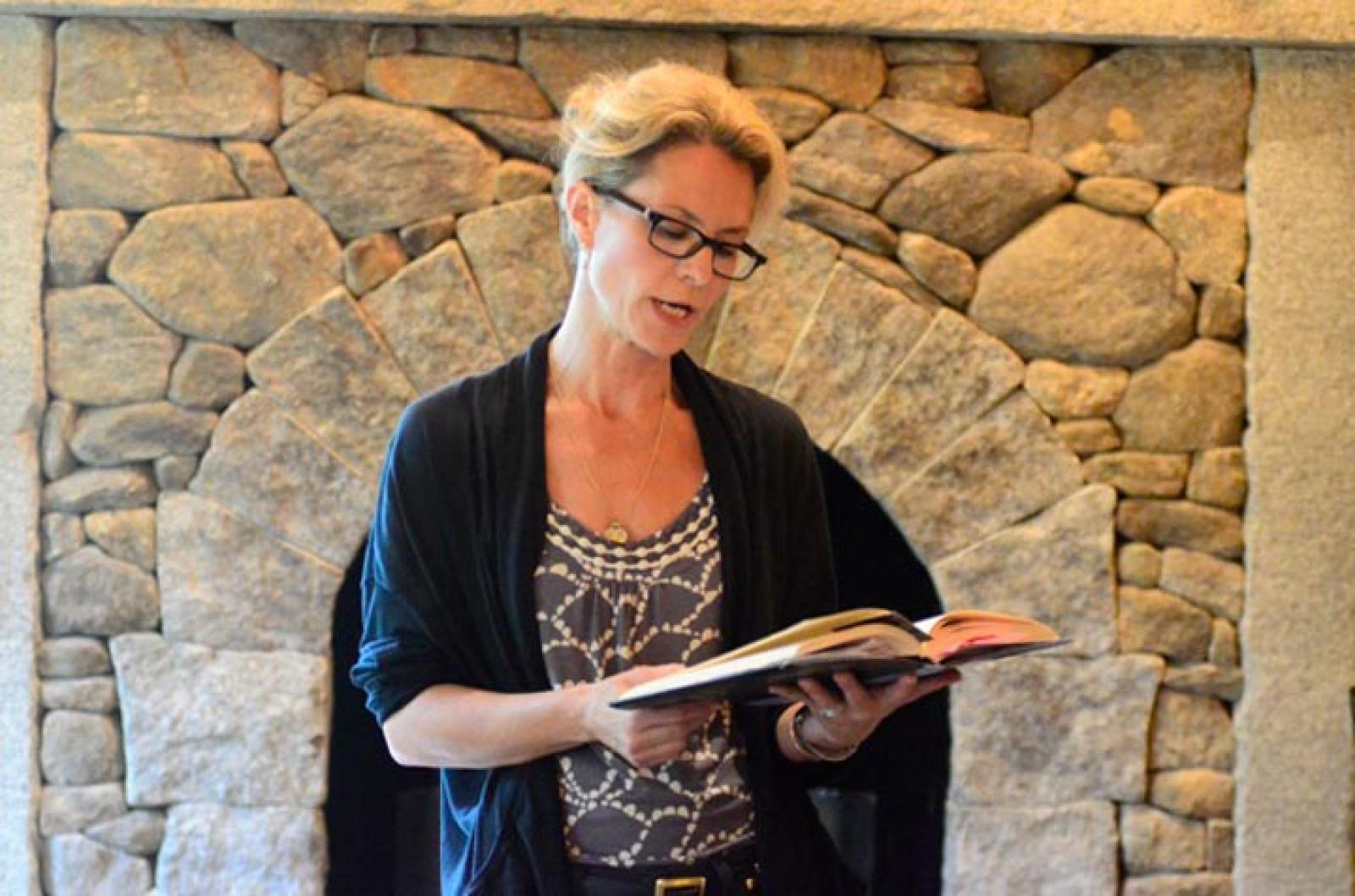In a 1967 Life magazine story, the late William Stryon was quoted as saying: “Writing is a cruel and wracking pursuit. I hope none of my children follow in my path.”
Alexandra Styron has done just that, and in her book — Reading My Father — she has found a lifeline away from the scar tissue of her upbringing to a deep and compelling portrait of a complex person — father and writer.
“Daddy was both a wonderful man and an impossible one,” Ms. Styron told an overflow audience on Wednesday night at State Road restaurant, when she read from her book as part of the Speakeasy Series, ongoing fundrasier for the West Tisbury Library.
The youngest of William Styron’s four children, she had experienced firsthand both her father’s glory days and his decline from the pinnacle of literary achievement to an end-of-life battle with deep depression. When he died in 2006, Alexandra had established herself as a writer with the publication of her first novel — All the Finest Girls — and was working on her second and trying to be the best mother possible for her two children.
“The time had come to shake loose from the tremendous weight my father’s existence had exerted on me,” she told her audience, “I was fatherless, orphaned in some respect but also free. Thinking about my father had little appeal to me.”
Several years later, struggling to get beyond the first 100 pages of her novel, she said she found herself “slipping through the hatchway to a very dark place.” She was full of self doubt, and she began to think about her father “and how troublesome the creative process was for him.”
After a long string of groundbreaking books, among them Lie Down in Darkness, The Long March, The Confessions of Nat Turner, and Sophie’s Choice, William Styron spent the last 27 years of his life struggling to complete a novel about being a marine in World War II.
“A man completely in the thrall of his art, a writer who considered himself first and foremost a novelist, had not completed a novel in more than a quarter century. It was a daily reality that could have been nothing less than tortuous for him . . . A scrim had risen, I could see my father from a new angle, and my heart went out to him,” she said.
Brooklyn, N.Y., where Alexandra lived, turned out to be an important connection back to her father. She was asked by a magazine to write an article about the borough and, at first, thought it would be a breezy account “about living people doing happy things.” But then she recalled her father’s experience in 1947 when he met a beautiful Polish woman in Brooklyn, a holocaust survivor, who was the inspiration for Sophie’s Choice. Alexandra’s article became an elegy that allowed her to mourn her father and begin to fully understand him. Shortly thereafter, The New Yorker invited Alexandra to write a much deeper piece, and the publication of that article led to a contract to write a memoir.
Panic followed the realization that she did not really know her father. She knew the pain of growing up with him, his last years of descent into depression, but not the full story of his life. So she went to Duke University, where Mr. Styron’s papers are stored.
“There among all those yellowing pages, my father came back to life for me,” she said.
It was a journey deep into her paternal history — a lonely boy who lost his mother at age 14, a precocious but bored student, a frightened marine, a literary star, a waggish rake.
“I knew at last that I had a story to tell, one as fascinating to me anyway, as the best fiction. The dignity of my father’s characters was always in their essential multi-dimensional humanity. I hoped that I could honor his memory by attempting something similar — and telling the truth as straight as I could.”
Ms. Styron’s mother, Rose Styron, attended the event.
“She is a terrific writer,” Mrs. Styron said of her daughter after the reading. “I did not see his life as darkly as she did. For me, it was a long and romantic, up and down, 50 years. I can’t help regretting that she was the youngest and that she saw her father’s decline in a way the other children did not. But I am glad that she came to understand her father through all the research she did and by writing this book.”
The next event in the West Tisbury Library Speakeasy series is June 20, featuring best selling novelist Richard North Patterson. Tickets are available by calling Carol Brush at 508-693-3489.






Comments
Comment policy »